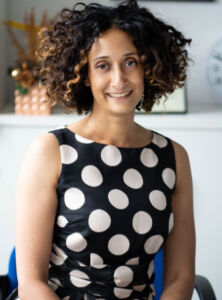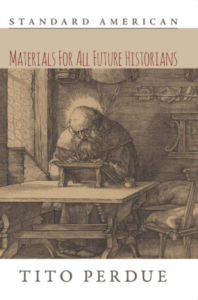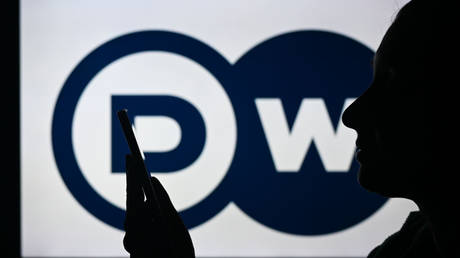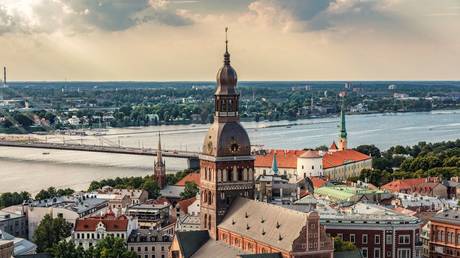Katharine the Great: The State of British Education

Katharine Birbalsingh (photo from the UK government website).
2,205 words
The Jesuits famously pronounced, after Aristotle, “Give me the child and I will give you the man.” This maxim, or a version of it, reappears throughout the history of education, and by the time it reaches Vladimir Illyich Lenin, it has taken on a more sinister tone, as you might expect: “Give me four years to teach the children and the seed I have sown will never be uprooted.” The modern Western state has accepted the baton, and effectively says the same thing.
I am not a parent, but I have to feel for those who are. When we went to school, our parents could be reasonably assured that we would return as pretty much the same people who left with our satchels in the morning, just knowing a bit more and a little better equipped to add to that store of knowledge. Today, the reverse is increasingly the case.
Gramsci’s “long march through the institutions” looks as though it is nearing its end in the United Kingdom, although who is joining in the marching may have surprised the imprisoned Italian radical. While education seems quite obviously to be imperative to the progress of any civilization, a possible corollary to this is that, should you wish to de-civilize a society, it is also imperative to pay attention to educational principles, just a different kind of attention.
When Tony Blair’s Labour Party began what turned out to be their ruinous reign in the UK in 1997, Blair’s keynote speech famously outlined his incoming government’s priorities as “education, education, education.” This appealed to the masses and the media alike, but in the slippery manner that would become his trademark, Blair did not say what he and his party wished to do with that venerable institution.
More than a quarter of a century after Blair’s people set in motion what we see today in all areas of British life — mass immigration, state-sanctioned ethnomasochism, managerial/technocratic rule, the policing of non-approved opinion — British schools and their curriculum have changed so as to be almost unrecognizable from the system that built the Empire and made British education the envy of the world. The sons of maharajahs were not seen in Oxford and Cambridge because they liked the weather, and the global wealthy still send their scions to the British equivalent of the Ivy League.
Oxbridge, as the two universities’ cities are jointly known, may still be the gold standard for higher education, but Gramscian changes earlier in the educational cycle have accelerated over the last decade, and something of a reversal has taken place. Where once, well within living memory, a child received his formal education in the classroom and his moral tutelage in the home, the state is now seemingly dispensing with the former and taking over the role of the latter. Black history (most of it spurious), sexual and gender ideology, and anti-whiteness have all been introduced to the childhood classroom and, despite the option of homeschooling in the UK, this is both impractical for working parents and increasingly difficult to gain the state’s permission, such as when those parents are Christians, for example. This has great bearing on the future, because it creates the people who will be that future.
Homeschooling is not generally to the taste of the new elites. The idea that the family, the concept of which has been under constant attack for decades, should impart knowledge to its children rather than a central, governmentally-controlled system is not to be borne under a globalist agenda which requires uniformity of thought. In Europe, countries in which the practice is illegal include Greece, Finland, Germany, and perhaps surprisingly, Hungary. In Spain it is something of a gray area: legal under the Spanish constitution, illegal according to education law. It is not hard to see why evolving totalitarian states flinch at the idea of parents taking the educative role they feel is the gift of the state.
And what exactly is education? We have learned — we should have learned — many things about the new Left over the last five or so years, on both sides of the Atlantic Ocean. One of these lessons is that the meaning of words is not fixed for these people, but malleable. Like Humpty Dumpty in Lewis Carroll’s Alice in Wonderland, words mean what the Left want them to mean, no more and no less. Any attempt at philology or investigation into semantic provenance is patriarchal oppression, or whatever buzz-phrase these conceptual illiterates happen to reach for as though it were a random beach towel. But, if you are reading this and you do not work for the state, I venture to suggest that you know that there is meaning in meaning, and words are not just faddish and adjustable labels but come with their own history, a cargo of meaning and significance. “Education” is one such word.
The Latin educare and educere are conflated in the English word “education,” and both are just as appropriate when applied to horses as they are to humans. The former means to train or mold, the latter to lead or take out. The ancient Greek word for education, paideia, is far more specifically to do with the rearing of children, the training and discipline which allows childhood to progress to maturity for the benefit of the community. And, while we are back in the Classical world, we should add Plato’s famous definition of education from the Laws, which gives a clue as to exactly what it is that the Left finds, to use their own gormless vocabulary, “problematic”:
Education is the constraining and directing of youth towards that right reason, which the law affirms, and which the experience of the best of our elders has agreed to be truly right.

You can buy Tito Perdue’s Materials for All Future Historians here.
Talk of “the best of our elders” implies both a meritocracy, anathema to the new Left, and the dreaded patriarchy, public enemy number one for the same people. So much for education in and of itself.
Education and educational establishments in the UK are no longer simply the province of Platonic guidance of the younger by the elder, but have become yet another ideological battleground, and one school in particular has been at the center of media attention. Occasionally, schools still arise in the UK which attempt a return to the educative values of a rapidly vanishing age, but their struggle is fierce and getting fiercer. One such school is the Michaela Community School (MCS) in Wembley Park, north London. Its founder and Headmistress — or Principal, in American parlance — is Katharine Birbalsingh, a slight, coffee-colored lady with a shock of corkscrew hair. She is known to the British media, who like to have a pet name for people in the spotlight, as “Britain’s strictest headmistress.” It’s not that she flails students like some Dickensian tyrant, and MCS is not Dotheboys Hall. She simply holds to a simple and consistently applied set of standards and rules. The curriculum aside, children are not permitted to run in the corridors, nor can they speak there. They sit up straight in class, minus their mobile telephones. They get detention for lax behavior. When challenged by parents over what is now seen as a barbaric practice in a time which is becoming increasingly child-centric, she asks complaining parents which they would prefer: for their children to take a detention and do some extra schoolwork, or for them to grow up functionally, numerically, and socially illiterate. It is already a tired adage that schools and universities now teach children what to think and not how to think, but not only does MCS do the opposite, discipline and comportment are promoted as key elements which must be in place before thinking of any sort worth the name can be achieved.
Ms. Birbalsingh is herself an Oxford graduate, and had already had a taste of British state attitudes to a classical education. Speaking at a Conservative Party Conference, she spoke against what she saw as a “culture of excuses” aimed squarely at current identity politics. This cost her her job. Having been inspired to start MCS after a tour of Australian schools during which she witnessed the apparently compassionate but ultimately ruinous attitude of the Australian state to its Aboriginal children, she claimed that “compassion is killing the child,” and it therefore has no place in her classrooms. She still adheres to some modern fads, however, and despite describing her approach to education as “non-progressivist,” she refers to the Aboriginal students as having been “othered.”
Michaela Community School openly promotes values such as punctuality — presumably there are not many black students — personal responsibility, and its twin, moral agency. Uniforms are to be worn properly and smartly, desks face the teacher rather than huddled together with children facing one another, and the canteen menu is vegetarian. This is an attempt to head off problems with the dietary requirements of different religions. The school is popular with parents and unpopular with the British deep state for just these reasons.
The school, in a very ethnically-mixed area, has excellent results, and accordingly many of its pupils pass on to good universities. Ms. Birbalsingh, as a woman with a non-Caucasian ethnic background, ought to be a poster woman for diversity and inclusion, except that she is offering the wrong variety of both. Its current problems, however, are not academic, but religious. In the tenth anniversary year of its founding, the school has found itself both in court and quite literally in the firing line.
The problems began over the subject of school prayers. Obviously, with children from a number of different religions present at the school, a communal assembly (of a type we probably all remember) is out of the question. However, Muslim pupils at the school, who make up 50% of the total, demanded a prayer room, and Muslims in Britain are becoming increasingly used to getting what they ask for. In fact, a demand means they have already asked once, as for the Islamic caucus the last straw is the second one. Ms. Birbalsingh, however, is unequivocal on not allowing this provision, or any other identity-based dispensation:
To the Jehovah’s Witnesses: We teach Macbeth . . . even though it has witches in it. To the Muslims: We don’t have a prayer room. To the Christians: We offer revision classes on a Sunday. To the Hindus: The plates will have been touched by eggs.
All’s fair, it would appear. But fairness is not the object of Muslim demands: Islam is, and the concomitant submission of the kufr. Unless you get your definitions of world religions from George W. Bush and other duplicitous or ill-informed politicians since 9/11, Islam means submission, not peace. Ms. Birbalsingh turned down their request, with predictable results.
Michaela Community School did not suffer the inconvenience of mere parental demonstrations outside the school gates. Bomb threats requiring a disruptive police search were phoned in, glass bottles were hurled into the school grounds, and a teacher had the standard intimidatory nicety of a brick through her window. A black teacher was subject to the sort of racial abuse that would lead to jail time for any white protestor, and no such event would be complete without a stream of online death threats, which duly infested social media. A Muslim pupil — or rather, her family’s lawyers — launched an unsuccessful High Court appeal against this, receiving almost £200,000 in legal aid to do so. Muslims really don’t take no for an answer.
Ms. Birbalsingh, however, does not suffer fools gladly, and despite describing herself as a “small-c conservative,” she criticized Suella Braverman, the Conservative politician and ex-Home Secretary who has commented on the case, as using the school (to use another favorite media phrase), as “a political football.”
If education is a football, it is an ideologically-shaped one. Devout Muslims are conflicted over education. While the Qur’an’s centrality still drives Islamic notions of education, some Muslim parents are aware that greater access to Western education is essential in a non-Islamic state. However, there is an inexorable tendency for Islam to force institutions in host countries to adapt to its tenets rather than the other way around. This is why female Muslim police officers wear the hijab and halal food is served across UK prisons. If Mohammed cannot go to the mountain, then the mountain must come to Mohammed.
Ms. Birbalsingh has won this round, but with the results we have seen. But there are now others marching through perhaps the greatest of institutions, and it remains to be seen whether anyone can stop them. Islam has far greater weight to throw around in the UK than mere school inspectors, and a teacher from a school in the north of England is still in hiding three years after his rash decision to show a cartoon of Mohammed to his students during a lesson on religion.
Katharine Birbalsingh’s reasons for banning prayer at her school can be found here, her full statement on the resultant court case here. Ms. Birbalsingh is not opposing Islam but attempting to ensure equality of religious observance, something acceptable to all religions but one. Her school is a beacon, but how long it will remain lit may teach a lesson to all.



